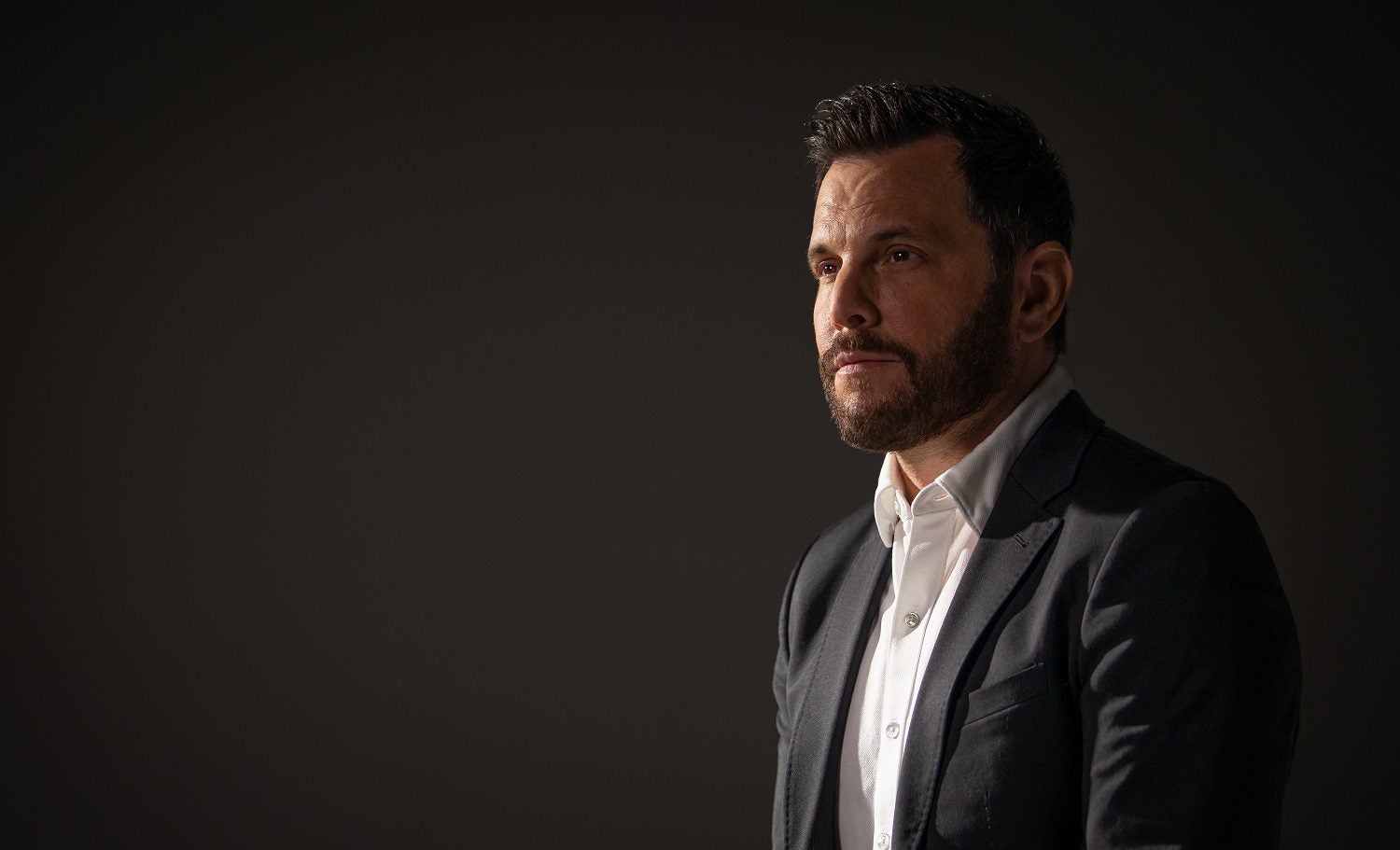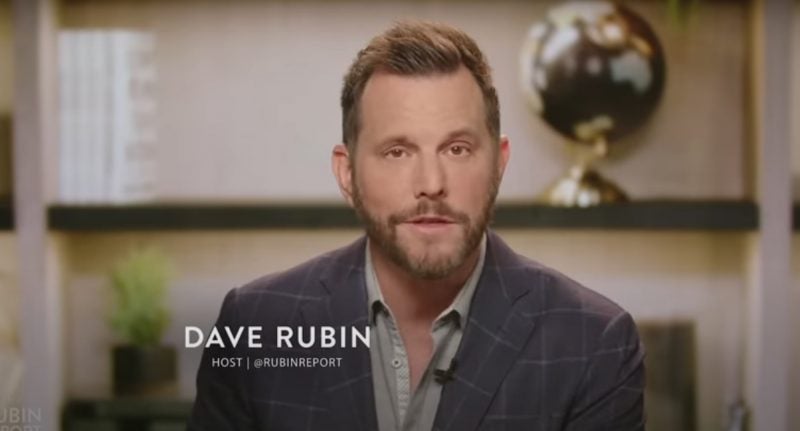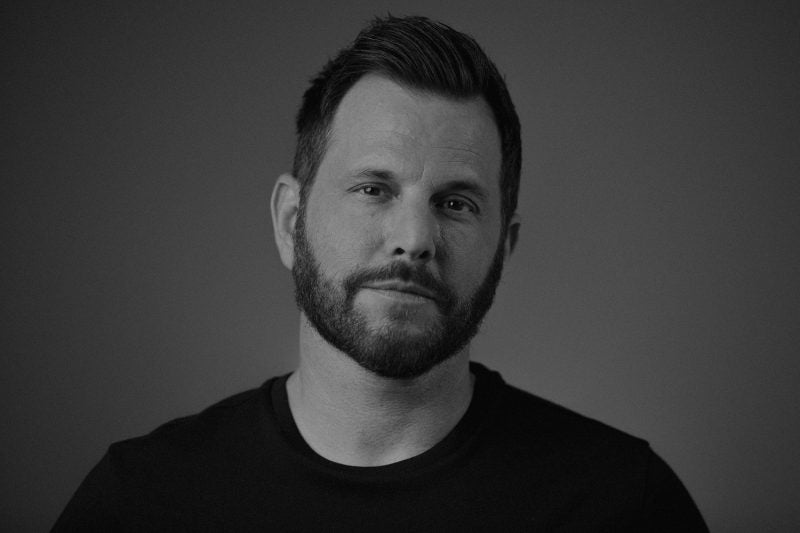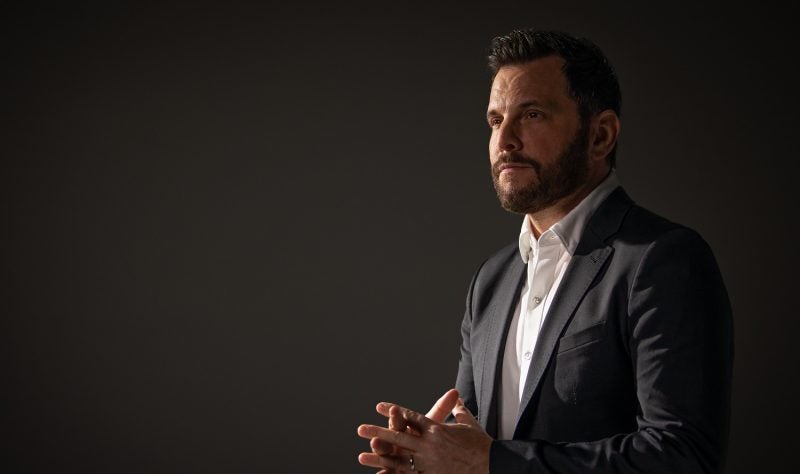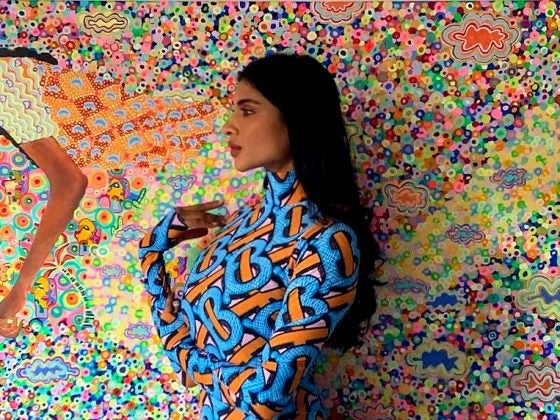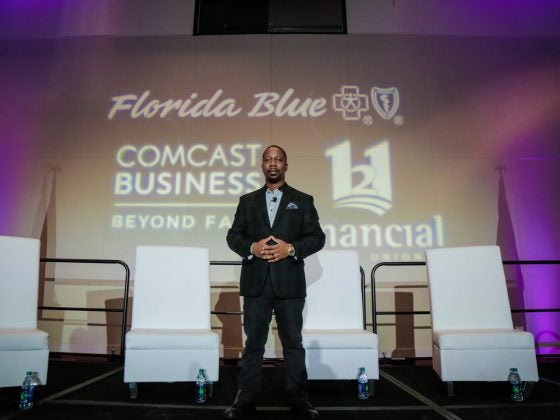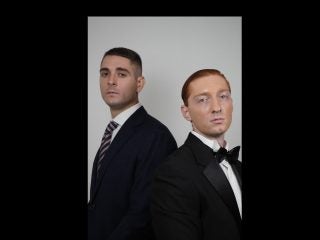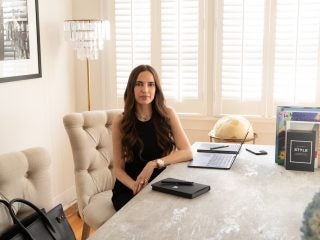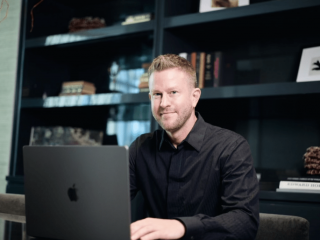Dave Rubin is a highly influential political commentator, whose show “The Rubin Report” on YouTube alone has garnered 760+ million views, with nearly two million subscribers. (On Rumble, he has a half-million followers, and about 350K on Instagram.)
The guest list on the program has included a who’s who of thought-leaders, politicians and prominent intellectuals, including Ben Shapiro, Jordan Peterson, Steven Crowder, Dennis Prager, David Frum, and scores of others, including some opposing of his own views.
He’s published two recent books that urge readers to challenge dogma and engage in more critical analysis of ideas: New York Times bestseller Don’t Burn This Book: Thinking for Yourself in an Age of Unreason (2020), and Don’t Burn This Country: Surviving and Thriving in Our Woke Dystopia (2022). He has been a vocal critic of political correctness, cancel culture, and the erosion of free speech on college campuses.
In addition to his podcast and book, Rubin has expanded his reach through public speaking, and live discussions, including a year and a half tour with Jordan Peterson. Rubin has also made appearances on various television programs, sharing his insights on current affairs and the state of political discourse.
Owing to his respected place in the media, he was granted interview access to Elon Musk during the Twitter Files fiasco, and given a behind the scenes look at Twitter.
Swagger interviews Dave Rubin, to discover the fascinating story of his career trajectory – and how he built his brand, his message, and his media.
How would you describe your show?
Dave Rubin: My show, now, in 2023 is very different than when I started this show originally in 2013. At that time, I’d just moved to Los Angeles. I was a lefty, I was a progressive. I was doing my show with the Young Turks, which is a very far leftist YouTube network. I was a Bernie Sanders supporter. It was a different time for me, a different time for the country.
At the time, I was doing more of a ‘View’, hot topic panel style show with comedians and authors, talking about whatever was going on. Now, the crux of what I do is an hour long, daily news show directly to the camera, where I tell people in a narrative, what is going on in the world, how politics and culture are connected to the media and tech. And then I still do one interview per week – sometimes more than that. For the most part, I’m really telling people what I think about the world, and how to fix the world. Obviously, in those 10 years I’ve been on a political journey as well, because I went from being a progressive, to now I consider myself a wide-tent conservative. I definitely don’t fit into all of the traditional boxes you might call a conservative.
Classical liberals believe in individual rights and laissez-faire economics, classical rights. That has very little to do with modern liberalism that has mostly been hijacked by progressivism, and unfortunately has overtaken almost the entire Democratic party and almost all of our cultural institutions.
If I made my mark in some way, it was just because I was being honest about my opinions as they were forming. I was talking to people and learning along the way. I think my audience learned with me. Some left me when they didn’t like how I evolved, and I got more along the way. I guess that will continue to happen for as long as I do it.
There is a buddy/friend feel to the show, and an insightful exchange. Is that what you’re going for?
Dave Rubin: That’s what I’m going for. I’m not there to be a perfectly polished broadcaster. I don’t consider myself a journalist. I get information the way most people get their information, whether it’s from Twitter, or Instagram, or YouTube. I tell people what I think. I try to talk to the camera in a way that is like talking to a friend.
With me you are on a journey. The news is never going to stop, culture wars are not going to stop, but if you give me the hour, that’s great. If you tuned in and feel better, that’s pretty good.
What or who changed your mind the most on your show?
Dave Rubin: There is a very famous moment where people can literally see me changing my mind on camera – this is an interview back in, I think 2015, with Larry Elder, who is a conservative, libertarian radio host – happens to be black. I was still a lefty, still referring to myself as a liberal at the time. We had an interview where we started talking about systemic racism and policing in America, we went back and forth, and he challenged me on my issues that I brought up.
He basically nailed me with facts related to policing and race in America. People can see, I came for the fight not armed properly with information. Someone who smacked me around. The beautiful moment is that people can see the best moment and worst moment at the same time. It was the worst moment because I had a guest who was clearly more informed on the issue we were debating. It was my best moment because when the interview ended, I had a bunch of producers that said they could cut things out and I knew we couldn’t cut it. We aired it as is. It immediately caught fire online. I think, cumulative, it’s been seen 100 million times.
That was very enlightening to me. I just continued to go down that road.
What’s the key to productive dialogue?
Dave Rubin: It’s a liberal principal to respect free speech and be willing to hear other opinions and debate those opinions, and let the best ideas fall where they may. I was never very hysterical about things anyway. My temperature runs cool. So, I was never really part of the outrage machine we see now. All of the topics at holidays and dinners, we’d debate everything.
I’ve always been willing to sit down with someone who disagrees with me. I actually relish that. Be willing to agree to disagree, be generous of spirit, and be kind.
What message do you want to impart in your books?
Dave Rubin: The first published in April 2020, was a full defense of classical liberalism, individualism, rights, freedoms, and I lay out all my political positions. That was right when the lockdown happened. My book tour never happened, which was obviously disappointing. The world was in a very strange state at that time. The second book, Don’t Burn This Country, came out in a post-covid world.
I had seen that so many of the positions I took – like that the Constitution of the United States is the greatest man-made document ever to free people, the beauty of our bill of rights and God given rights – all of these things were under absolute assault. The Rule of Law was under assault. It really was, in some ways, a warning that this was not going to stop until we confront it, but it was really saying this stuff is happening either way, and there are ways that you can survive and thrive in our ‘woke dystopia’. The ‘wokeness’ is not going away. It’s simply a parasite of our system. But it doesn’t have to infect the entire system. There is a way to carve out a good life where you have some autonomy over yourself, and control over your family and community and belief system.
Do you have an opinion on how to define manliness, and masculinity?
Dave Rubin: I toured with Jordan Peterson for about a year in a half … (who is) talking to young men about taking their life back, and having their shoulders straight, slaying the dragon that is in their life. There is an effort to erase biological reality. Men and women are different. Men are more interested in things, which is why they generally become engineers. Women generally are more interested in people, and are thus mostly nurses. Sure there are exemptions to everything, but by and large this is the case. Men are hunters. Women are gatherers. For the most part, if you handed a man and a woman on the street a two year old kid, the woman would have better knowledge of what to do.
There is an assault on men. Where would we be without men? Men built the skyscrapers, and men in subway tunnels cleaning with cockroaches around. These are generally not jobs that women take. That again is not to denigrate women, but it’s just a reality.
Jordan Peterson often uses the word “responsibility” as something men should aspire to.
Dave Rubin: Responsibility is saying: I’m actually responsible for myself. The system is not responsible for me. Then I start taking care of my family, so I’m responsible for my family. Then what do I want to be responsible for? Community, your city, then your state, then your county. You have a little skin in the game of life. It’s incredibly important. I think most people think they are floating around in a vacuum of space. They can do what they want when they want.
Now we have a bunch of younger people that think they should be given everything. This is socialism and communism; they just want stuff without doing anything for the stuff. What they are saying is that they want to take what other people earn.
What is it like for you being a new dad?
Dave Rubin: It’s unbelievable. People always say, ‘You can’t describe it, you’ll never understand it.’ It really is true. It’s unbelievably joyful and amazing. You wake up and have two kids who have nothing but an open universe in their eyes, and you have a big something to do with shaping how they view the world. I feel it has given me a new perspective. I’m not just fighting for me, I’m fighting for these kids. It makes time feel different – there are so many things. I was not expecting to have kids. I’m an older father at 46. This was not really planned. I’ve spent a lot of time in my life to make my career work. It did. Now, it feels like my cup runneth over. I have what I want and I want to defend these kids from a world that can be pretty wacky.
I’m also a Dave, and I’m curious why you go by Dave?
Dave Rubin: Partly it’s because of David Letterman. I noticed the show was called The Late Show with David Letterman, but everyone called him Dave. “Dave how are you?” There was something about that that struck me as very friendly. Nothing wrong with David, but there was something about ‘Dave’ – I thought Dave Rubin had a nice rhythm. Now, I’m basically Dave. Though, my parents and siblings call me David.
Let’s say I, or someone else, wanted to start a show like yours, what advice would you give?
Dave Rubin: I get this question a lot. There is only one answer – just do it. Anyone that has a phone, a computer, and the internet can do what I do. It doesn’t have to look perfect. If you have something to say, say it. Do a little digging about how to optimize some metadata so it gets picked up by the algorithm. Be yourself and don’t worry about the views. You might do it every day for a year and get five views, cause your parents watched and your girlfriend watched.
The next thing you know you have 250 views, then 2,000 views. If you get hung up on the views, it’s a recipe for failure. If you do what you think is authentically right – you don’t have to be a star overnight. There is a surplus of it, so it’s harder to do now. When I started there weren’t as many – so timing worked to my advantage, but you just have to put something out there. If there is a reason for someone to listen to you instead of someone else, they will come around.
[this interview has been condensed for brevity]




